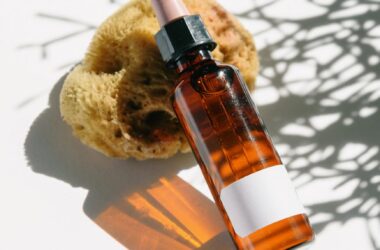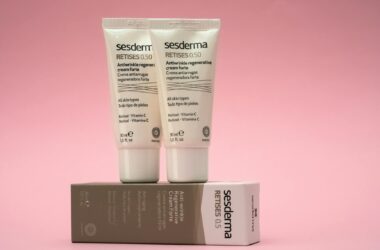Acne is a common skin condition that affects people of all ages and genders. While it is often associated with puberty, acne can occur at any age and can be caused by a variety of factors. Understanding what’s causing your breakouts is the first step in preventing and treating acne.
In this article, we will explore the most common causes of acne, including hormonal imbalances, stress and anxiety, diet, cosmetics and skincare products, environmental factors, medications, and genetics. We will also provide expert advice from dermatologists on how to prevent and treat acne.
Hormonal Imbalances: A Common Cause of Acne
Hormonal imbalances are one of the most common causes of acne, especially in teenagers and women. During puberty, the body produces more androgens, which are male hormones that can cause the sebaceous glands to produce more oil. This excess oil can clog pores and lead to pimples, blackheads, and whiteheads.
Women may also experience hormonal acne during their menstrual cycle, pregnancy, or menopause. Hormonal contraceptives, such as birth control pills, can also affect hormone levels and cause acne. If you suspect that your acne is caused by hormonal imbalances, you should consult a dermatologist who can recommend appropriate treatment options, such as oral contraceptives, spironolactone, or isotretinoin.
Stress and Anxiety: The Relationship Between Your Emotions and Skin
Stress and anxiety can also contribute to acne breakouts. When you are stressed, your body produces more cortisol, a stress hormone that can increase the production of oil in your skin. This excess oil can clog pores and cause acne.
Moreover, stress can also trigger inflammation in the skin, which can exacerbate acne. If you are prone to stress-induced acne, you should try to manage your stress levels by practicing relaxation techniques, such as meditation, yoga, or deep breathing. You may also want to consult a dermatologist who can recommend topical or oral medications to help manage your acne.
Diet and Acne: How What You Eat Can Affect Your Skin
Diet can also play a role in acne development. Certain foods, such as dairy products, high-glycemic-index carbohydrates, and sugary or fatty foods, can trigger acne breakouts. This is because these foods can increase insulin levels and cause inflammation in the skin.
On the other hand, a diet rich in fruits, vegetables, whole grains, and lean proteins can help improve skin health and prevent acne. If you suspect that your diet is contributing to your acne, you should consider making dietary changes and consulting a dermatologist who can recommend appropriate treatment options.
Cosmetics and Skincare: Are Your Products Causing Your Breakouts?
Cosmetics and skincare products can also contribute to acne breakouts. Some products, such as heavy moisturizers, oily sunscreens, or makeup that contains comedogenic ingredients, can clog pores and cause acne.
To avoid acne caused by cosmetics and skincare products, you should choose non-comedogenic products that are labeled “oil-free” or “non-acnegenic.” You should also avoid applying too much product and make sure to wash your face thoroughly before going to bed.
Table: Common Cosmetics and Skincare Ingredients that can Cause Acne
| Comedogenic Ingredients | Non-Comedogenic Ingredients |
|---|---|
| Mineral oil | Dimethicone |
| Lanolin | Glycerin |
| Cocoa butter | Hyaluronic acid |
| Isopropyl myristate | Propylene glycol |
| Sodium lauryl sulfate | Zinc oxide |
Environmental Factors: Pollution and Climate Changes
Environmental factors, such as pollution and climate changes, can also affect skin health and contribute to acne breakouts. Pollutants, such as dirt, dust, and smoke, can clog pores and cause inflammation in the skin. Moreover, changes in temperature and humidity can affect the skin’s natural oil production and cause acne.
To prevent acne caused by environmental factors, you should cleanse your skin regularly and avoid exposing your skin to pollutants. You should also use a moisturizer that is appropriate for your skin type and climate.
| Pollution | Climate Changes |
|---|---|
| Cleanse your skin with a gentle cleanser twice a day | Use a humidifier to prevent dry skin |
| Avoid touching your face with dirty hands | Wear appropriate clothing for the weather |
| Use an antioxidant serum to protect your skin from pollutants | Apply sunscreen to protect your skin from UV rays |
Medications and Acne: The Side Effects You Should Know
Certain medications can also cause acne as a side effect. These medications include corticosteroids, lithium, anticonvulsants, androgens, and some types of birth control pills. If you suspect that your acne is caused by medication, you should consult your healthcare provider who can recommend alternative medications or adjust your dosage.
Genetics and Acne: Can Your Family History Predict Your Skin’s Future?
Genetics can also play a role in acne development. If your parents or siblings have had acne, you may be more likely to develop acne as well. This is because genetics can affect the size and activity of sebaceous glands and the skin’s response to inflammation.
If you have a family history of acne, you should take preventive measures, such as maintaining a healthy diet, managing stress levels, and using non-comedogenic skincare products. You may also want to consult a dermatologist who can recommend appropriate treatment options.
Preventing and Treating Acne: Expert Advice from Dermatologists
Preventing and treating acne requires a multifaceted approach that addresses the underlying causes of acne. This may include dietary changes, stress management, appropriate skincare, and medication.
If you are struggling with acne, you should consult a dermatologist who can recommend a personalized treatment plan based on your skin type, severity of acne, and underlying causes. Treatment options may include topical or oral medications, such as antibiotics, retinoids, or hormonal contraceptives, as well as procedures, such as chemical peels, microdermabrasion, or laser therapy.
By understanding the common causes of acne and taking preventive measures, you can help improve your skin health and prevent acne breakouts.







